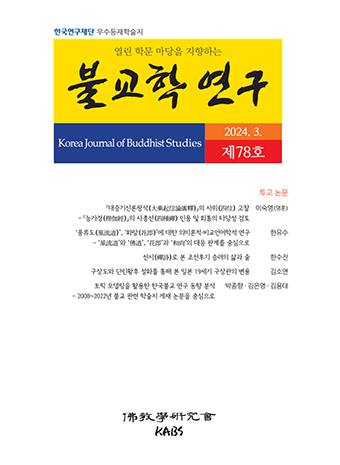Abstract
References
Sorry, not available.
Click the PDF button.
Information
The purpose of this paper is to see how Buddhist ethics has been understood in the west. First this paper points out two difficulties in understanding Buddhist ethics. One difficulty is that the scope, meaning, and role of Buddhist ethics cannot be easily defined. The other difficulty is that Buddhist ethics cannot be easily explained in a comprehensive manner due to its diversity and complexity in its content and nature. These same difficulties also appear when we understand Buddhist ethics in terms of contemporary ethical theories. Consequently, it is not easy to point out some similarities between Buddhist ethics and comtemporary ethical theories. In addition, it is not easy to find a theoretical framework to explain Buddhist ethics in a comprehensive manner. A most favored theoretical framework explaining Buddhist ethics is virtue ethics. Most western scholars consider Buddhist ethics as virtue ethics. But there are some disagreements among them with regard to what type of virtue ethics fits to Buddhism. The author also thinks that virtue ethics is a best theoretical framework explaining Buddhist ethics in a most comprehensive way. According to the author, Buddhist ethics rejects both Kantian deontological ethics taking a moral law as absolute and classical utilitarianism taking utility as the sole criterion of good.
Click the PDF button.
- Publisher :Korean Association of Buddhist Studies
- Publisher(Ko) :불교학연구회
- Journal Title :Korea Journal of Buddhist Studies
- Journal Title(Ko) :불교학연구
- Volume : 12
- No :0
- Pages :125~151


 Korea Journal of Buddhist Studies
Korea Journal of Buddhist Studies






